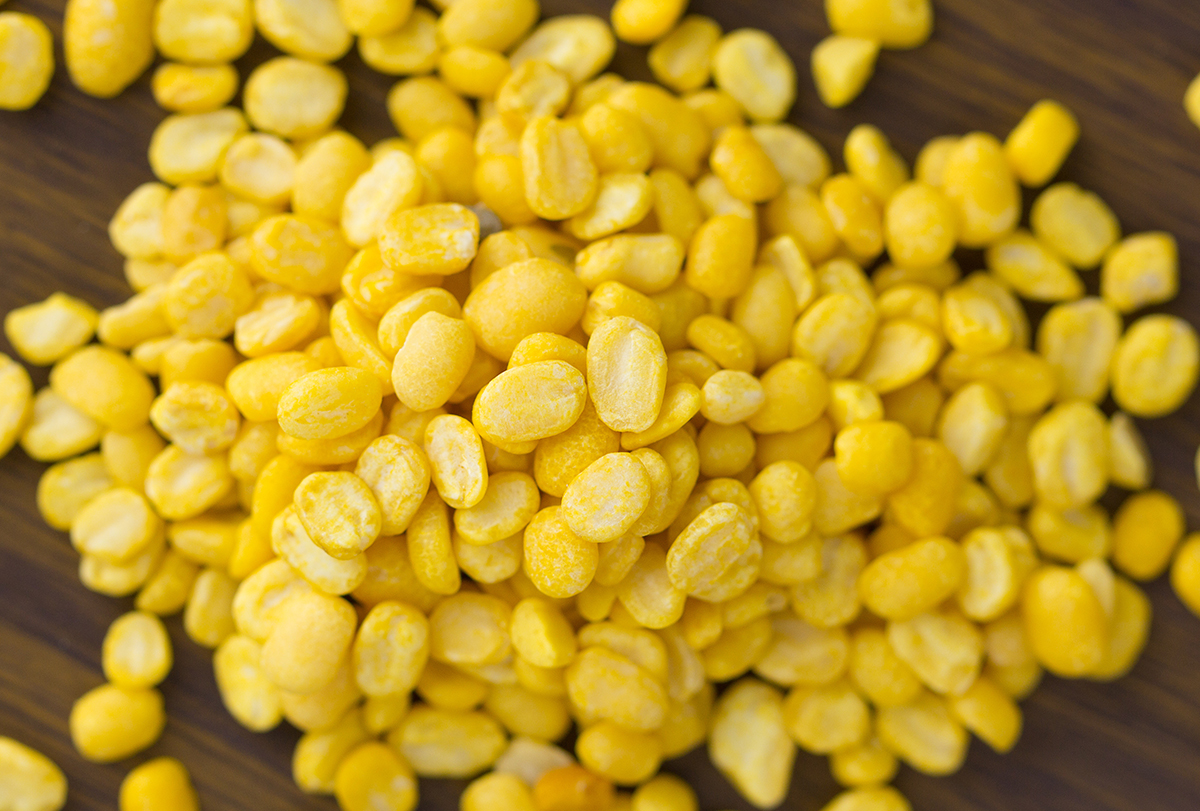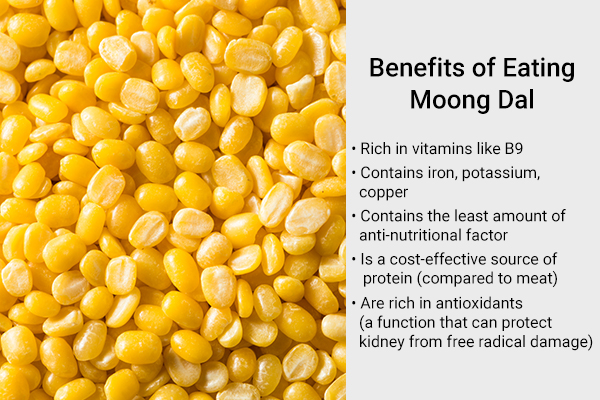The kidneys are primarily responsible for filtering the blood and sorting waste material from essential components (such as protein). The waste material, such as urea or uric acid, is then cleared via urine.

When the kidneys do not function well, such as in the case of acute kidney disease or chronic kidney disease, they are under increased load to perform their basic role.
Since the kidneys are the site of balancing electrolytes and filtering out protein from waste, a change in the diet is a necessary and effective way to manage kidney health. The main goal is to decrease dietary load (in the form of high protein or salt) to reduce the amount of effort the kidneys have to expend.
The main recommended changes include: (1)
- Increasing fruit and vegetable intake
- Lowering animal protein from meat and poultry
- Lessening the intake of eggs
- Consuming low-fat dairy products
Moong dal can be safely consumed by people with kidney disease. (2) Read on to know why and how much is safe?
Why Moong Dal Is Safe for Kidney Patients
Proteins cannot be entirely eliminated from the diet as they are important for the body’s development and function. Since animal proteins have a significant amount of sodium and potassium and produce creatinine, they put a strain on the kidneys, exacerbating kidney disease. (2)
For this reason, experts recommend the intake of plant sources of protein in the form of pulses and legumes.
Pulses such as moong dal (split green gram) are a staple in the Indian diet. It is considered the easiest to digest and contains 3% of the daily requirement of protein in 1 serving (30 g of uncooked dal). (3)
Professionals frequently recommend this dal as a protein source for people with kidney disease. (2)
Other benefits of eating moong dal include: (4)

- Rich in vitamins including vitamin B9
- Contains iron, potassium, and copper
- Contains the least amount of antinutritional factor
- Is a cost-effective source of protein (compared to meat)
- Are rich in antioxidants (which can protect the kidneys from free radical damage)
Thus, it can be safely concluded that moong dal is safe for people with kidney disease.
Practical Takeaways
- Kidney disease compromises kidney function, making it difficult for the kidneys to filter out protein from the blood.
- A diet high in animal sources of protein increases the load on the kidneys and leads to the worsening of kidney function.
- Experts recommend plant-based protein sources such as pulses to fulfill the body’s protein requirement.
- Among pulses, moong bean is considered the best for a person with kidney disease.
- Was this article helpful?
- YES, THANKS!NOT REALLY


